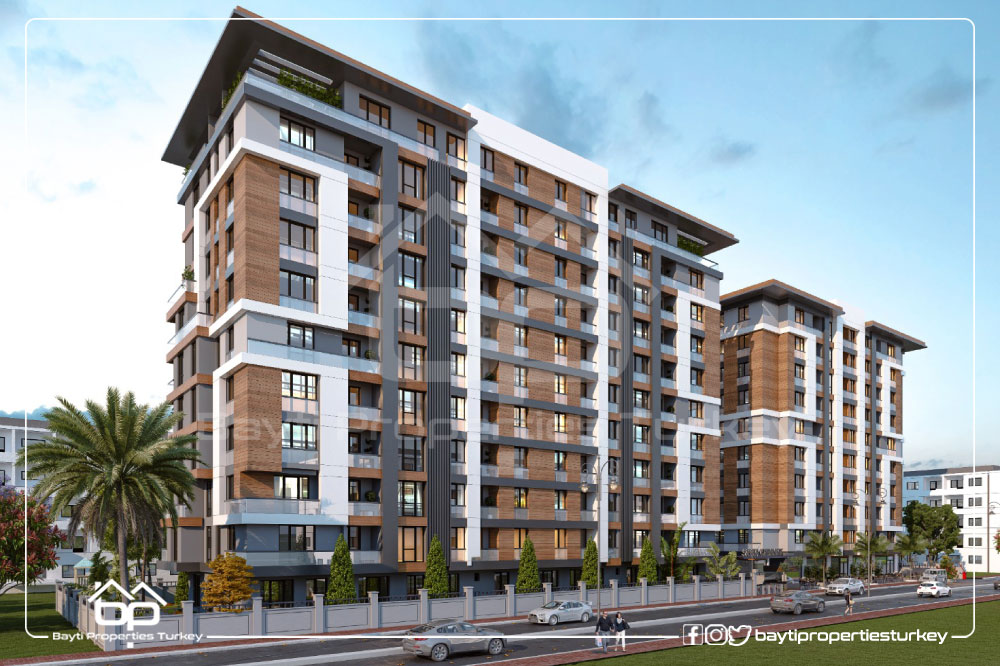The Future of Istanbul’s Real Estate Market: Insights and Predictions
Introduction
Istanbul’s real estate market is one of the most dynamic in the world. The city’s location on two continents and at a crossroads between Europe and Asia makes it an ideal hub for commerce, finance, and culture. In recent years, Istanbul has seen enormous growth in its economy, population density, and cultural diversity. As such, there are many factors that will shape Istanbul’s future real estate market. In this article we’ll examine some of those factors—like demographics, international policies/regulations and development projects—and how they might affect our ability to invest successfully in Istanbul property today.
Introduction
Istanbul is one of the most vibrant cities in Europe and a major tourist attraction. It is also one of the world’s oldest cities and home to many historical monuments. With its rich culture, beautiful landscapes, and thriving economy, Istanbul is an ideal place for both residents and visitors alike.
However, it has been facing some significant economic challenges over the past few years due to political instability at home as well as abroad (i.e., Brexit). This has led to much uncertainty within its real estate market; therefore it’s important for anyone interested in investing there or moving there permanently need answers before making any decisions regarding their future plans regarding these factors mentioned above.”
The Demographics
Istanbul is a growing city. The population has been steadily increasing since the 1960s and will continue to do so in the future, with estimates predicting an additional 2 million people by 2023. The average age of citizens is also dropping as more people move into Istanbul and have children, which means there will be more demand for housing.
The gender distribution of Istanbul’s population is heavily skewed towards males — there are only 1 million females compared with 4 million males — an imbalance that can be attributed to Turkey’s recent history of migration from rural areas as well as social norms regarding women working outside the home and education opportunities available for girls versus boys. Ethnicity plays a role here too: Turkish identity has traditionally been defined along ethnic lines rather than religious ones (Muslims make up 99% of Turkey), so many Turks identify themselves first as Kurds or Albanians instead of Muslims; this affects how families organize themselves internally–for example if parents come from different backgrounds then each may live separately rather than together under one roof–and externally through segregation between neighborhoods based on ethnicity rather than class
The Economy
The economy of Istanbul is strong and growing, with diversified sectors that are stable and have a bright future.
According to the Turkish Statistical Institute (TUIK), Turkey’s GDP increased by 5.1 percent in 2018. This growth was driven by an increase in private consumption and investments, as well as exports and imports.
In addition to this strong performance, Istanbul’s real estate market has also been thriving recently due to its stable economic environment:
International Policies and Regulations
International policies and regulations have a direct impact on the real estate market. The importance of international policies and regulations cannot be understated, as they can determine whether or not investors will invest in a country’s real estate market. The following are just some examples of how international policies affect Istanbul’s real estate climate:
- Capital controls are imposed by governments in order to restrict access to foreign currency, which can hurt property prices if buyers cannot obtain financing through banks or other financial institutions. This was one reason why many developers pulled out of Turkey during its financial crisis in late 2018; they were unable to secure funding from outside sources due to these restrictions on capital movement within the country.
- Foreign investment restrictions may also lead investors away from certain locations within Istanbul because they need access through their own countries’ embassies instead of being able to use local institutions like banks or insurance companies (which might be harder for nonnative speakers).
Future Developments in Istanbul’s Real Estate Market
- The new airport will be a game-changer for Istanbul’s real estate market.
- It will open in October, and it’s going to be massive: The facility will cost $20 billion and have a capacity of 90 million passengers per year.
- This is good news for real estate developers who want to build hotels near the airport because it means there will be more tourists coming through Istanbul than ever before.
- It could also mean that there will be more business travelers staying in hotels near the airport because they can get to meetings quickly without having to take public transportation from other parts of Istanbul or Turkey (which can sometimes take hours).
In order to succeed in the real estate market, you have to have a clear understanding of the factors that will shape its future.
In order to succeed in the real estate market, you have to have a clear understanding of the factors that will shape its future. The Istanbul real estate market is cyclical, driven by supply and demand, politics, demographics and economics. International policies and regulations also play an important role.
The following infographic provides insights into how these factors could affect Istanbul’s future housing market:
Conclusion
In order to succeed in the real estate market, you have to have a clear understanding of the factors that will shape its future. This article has provided insights into some of these factors and how they will affect Istanbul’s real estate market in coming years. Given these insights, we can now make predictions about what might happen next for investors who want to get involved with this lucrative industry:


